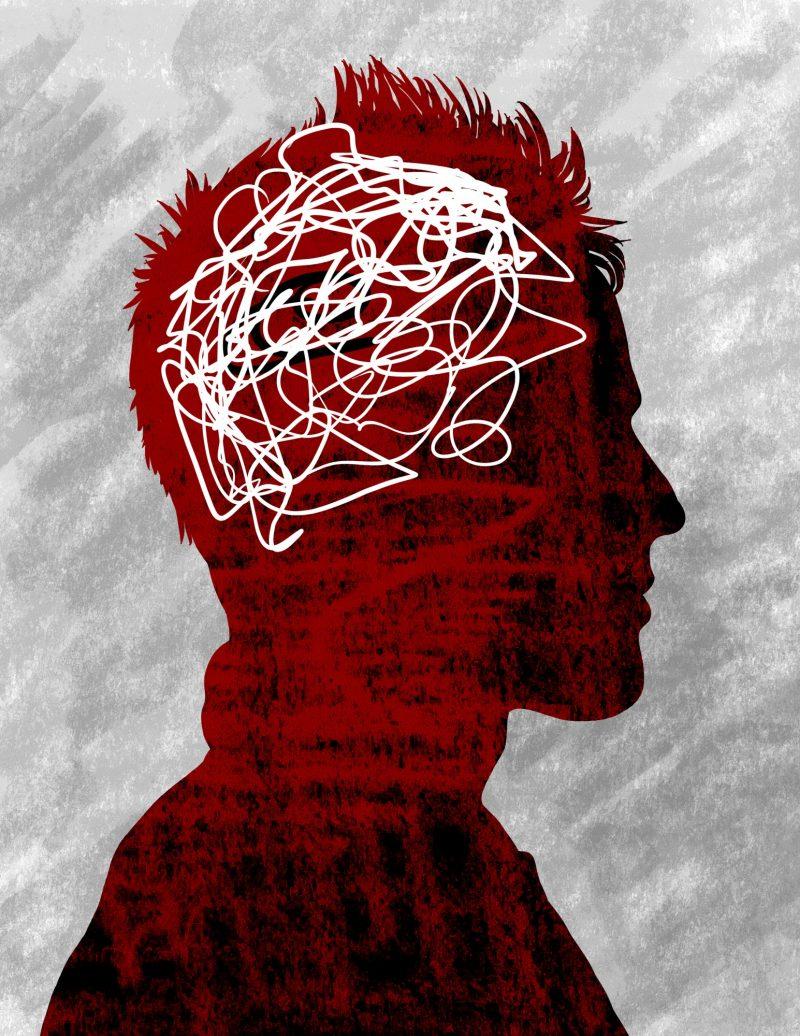While Trinity provides a variety of opportunities and enriching classes, college can also be stressful. Living independently for the first time and balancing schoolwork can make sleeping enough and socializing difficult. Many students experience mental health issues such as anxiety and depression, especially during their first year of college.
“In 2013, I was diagnosed with major depression, general anxiety and social anxiety, and so my first year here was very rough,” said Mindy Tran, senior and president of Trinity University Players (TUPS). “It was hard being away from home, and I felt like I didn’t really have friends or anything like that, so that made my depression worse.”
Tran went to see another doctor sophomore year and was diagnosed with bipolar disorder, which Tran said was life-changing. Some medications for depression exacerbate bipolar disorder symptoms, so when Tran received the correct medication to treat her disorder, she gradually felt better.
Tran also cited a positive experience with her Resident Assistant (RA) during her second semester as a big turning point that motivated her to seek medical help.
“I was sitting in Coates facing out towards Cardiac Hill and [my RA] came up to me like, ‘Hey, I’ve noticed that you’ve been down,’ and she was the first person to realize that without being really close to me,” Tran said. “I was like, ‘Wow, people here do care.’ “
Dalys Binder, senior and current RA in Camille Lightner Hall, talked about his experiences counseling students.
“The biggest thing I’ve learned as an RA … is that it’s okay to not necessarily have an answer, to let the silence talk,” Binder said. “As an RA, we’re always happy to walk [students] down to walk-in hours at Counseling Services if they want to make an appointment.”
Lori Kinkler, a psychologist who works at Counseling Services, emphasized the importance of sleep in dealing with mental health issues.
“Students get a lot of mixed messages about how they should be spending their nighttime hours, but if we’re talking about anxiety and mental health, sleep really needs to be a priority, and there needs to be no exceptions to that,” Kinkler said.
For depression, Kinkler encouraged students to come to Counseling Services and to find a constructive outlet for their feelings.
Kinkler also said that behavioral activation, the process of exposing oneself to positive activities, can be helpful.
“If a student can force themselves to get out of bed and take a walk, join a friend for lunch or engage in some pleasurable activity, it can jump start a more positive path,” Kinkler said. “It’s often hard to get yourself to do these things when you’re feeling down, so I think that’s where students need the help of others like friends and family and mental health professionals.”
For students who want to learn more about managing anxiety, Kinkler is leading three series of anxiety management workshops from 4:00 to 5:15 p.m. on various Mondays, Tuesdays and Wednesdays. While the series are geared towards students who have never sought any kind of treatment before, everyone is welcome to join.
“It’s a great introductory workshop that teaches what anxiety is, how and why it does its thing and several ways to power through anxiety instead of [avoiding] it so that anxiety eventually decreases overall,” Kinkler said.
Burnout, a phenomenon used to describe stress-induced exhaustion, is something many students experience at some point.
Chiara Pride, junior and president of Trinity PRIDE, gave advice about burnout.
“I got to a point last year where I was overcommitted because I was doing things because people asked me to as opposed to doing what was right for myself,” Pride said. “This university gives you a lot of opportunities, and you can be grateful for that and thankful for that, but you don’t have to do everything that comes your way … just give yourself space, in whatever form that takes.”
Tran also experienced burnout during her spring semester of junior year.
“I took on 20 hours and I was working on a mainstage show and I was in like 5000 different clubs and I thought I could do it,” Tran said. “I just had to come to the realization that I couldn’t keep doing what I was doing if I wanted my mental health to be stable. So I decided to take a semester off, knowing that it would take me an extra semester to graduate.”
Tran said that an important part of her recovery from mental illness is celebrating the small things.
“As president of TUPS we have cast parties and our last one was huge, but social-anxiety wise I went, I did my job there, I stayed and talked to a few people and that was like a little celebration … I conquered that moment,” Tran said.
Students interested in joining Kinkler’s anxiety management workshop can email [email protected]. The first workshop series is already underway, but students can sign up for the Wednesday sessions on Oct. 3, 10, and 17, or for the Monday sessions on Oct. 29 and Nov. 5 and 12.







